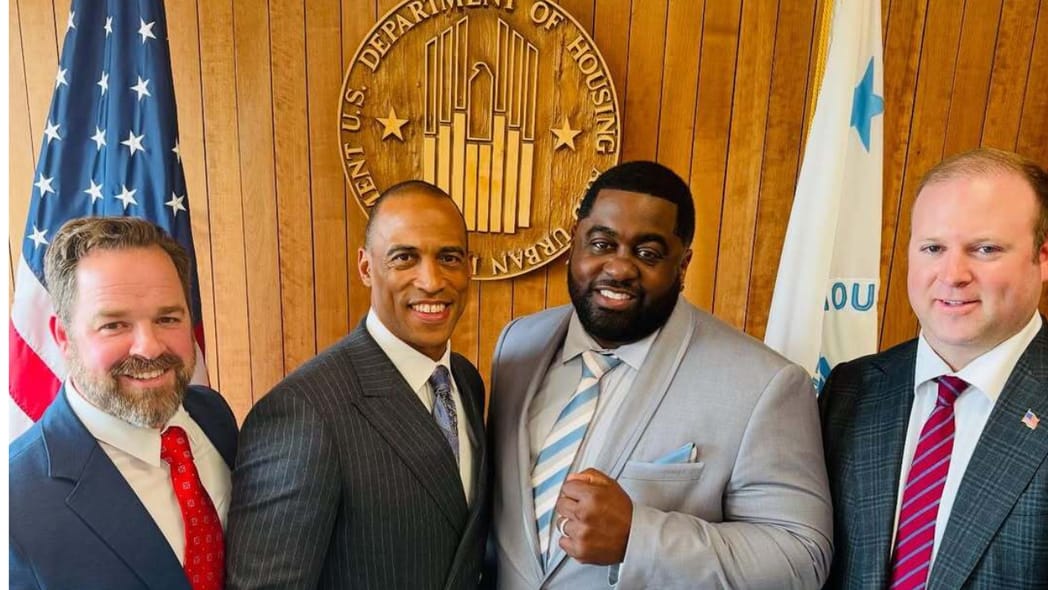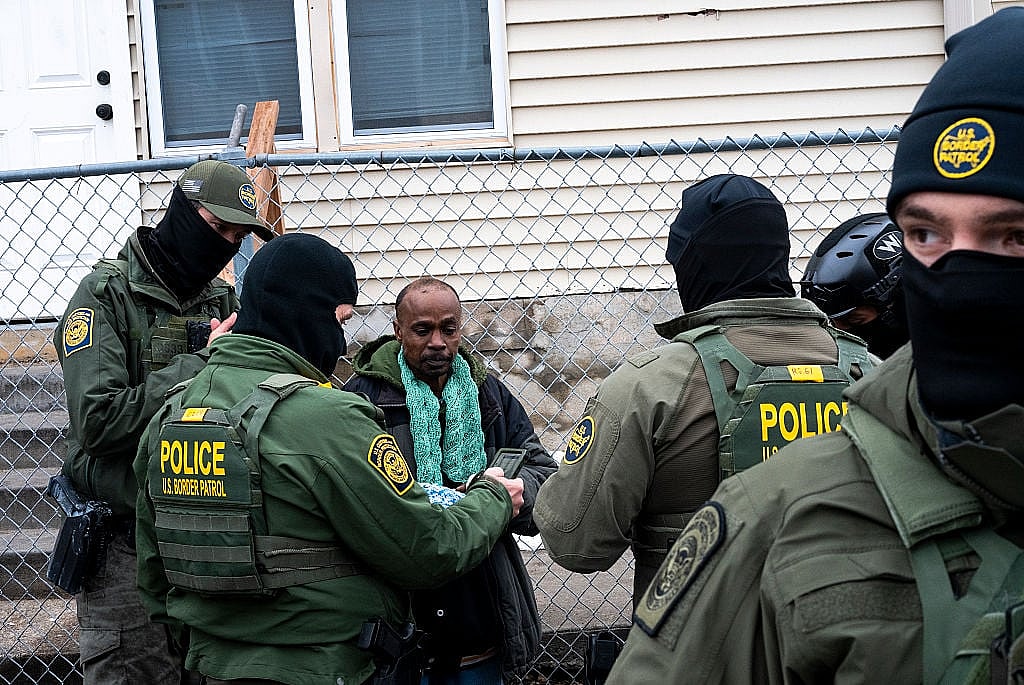When former professional boxer Charles Duke Tanner learned that President Donald Trump had issued him a pardon on May 28, he was completely shocked.
“Like in the boxing world, it was a punch that I didn’t see, and you know, those are the ones that knock you out,” Tanner told theGrio days after the life-altering clemency.
Tanner was convicted and sentenced to life in 2004 for a first-time drug offense. He’d been part of a drug trafficking ring and was caught by police after accepting 15 kilograms of fake cocaine that was part of a drug string. Despite having a perfect boxing record and great athletic promise, Tanner says his choices were made from a place of financial hardship after he’d gotten laid off from a boxing injury. That harsh life sentence he received reflected a larger imbalance in the War on Drugs, which frequently gave out extreme sentences to Black people in the drug game.
After surviving the reality of prison life, Tanner received the news of his pardon from Alice Johnson, Trump’s White House pardon czar. However, this wasn’t their first time meeting: Johnson played an integral role in an earlier commutation he received from Trump in 2020. While the past commutation brought his sentence length down and let him go free from prison, this recent pardon from Trump has given him a completely fresh start.
“They gave me my whole life back,” said Tanner of Trump and Johnson. That includes being reunited with his 22-year-old son, Charles Tanner Jr.
The pardon allows Tanner to better integrate into society as a law-abiding citizen and overcome financial and housing barriers that formerly incarcerated individuals often encounter due to their criminal record. Despite roadblocks, in the years since Tanner was released from prison in 2020, the former boxer has dedicated his life to service and ensuring that other Black men and women don’t end up like he did 20 years ago. From his hometown of Gary, Indiana, to Las Vegas and Washington, D.C., Tanner has traveled across the country advocating for criminal justice reform and housing development in Black and disadvantaged communities.
Tanner now works in investor relations at Impact Growth Capital, a social impact investment firm, and is working directly with the Department of Housing and Urban Development, or HUD, to improve the housing and economic conditions for Black neighborhoods. That includes financial literacy and educational opportunities.

“Part of my rehabilitation on the inside was that I had to learn where I really came from…we really didn’t have opportunities like most people do, and it’s because we’re caught up in a system that’s holding us back,” explained Tanner, who released the book, “Duke Got Life: A Boxer’s Fight for Freedom and One Last Shot at Redemption,” last year. “We can go to these neighborhoods and we can rebuild them… But if we go in and help rehabilitate the people, then we rehabilitate the neighborhood and the structure of the neighborhood.
“We need to do something to stop people from going [to prison] and by doing that, we have to attack housing, we have to attack education. We have to attack jobs, as well as the mental health, which is one of the main things that people who look like me didn’t use to want to accept,” said Tanner. “When we are challenging these things and come together…that’s what’s going to make this world great. And I believe that this administration is starting off on that path.”
Tanner was one of a handful pardoned for a non-violent drug offense among the more than a dozen who received presidential pardons from Trump last week. Most were convicted of white-collar crimes like tax evasion and business fraud. Tanner told theGrio he would like to see Trump issue more pardons and commutations for first-time drug offenders like him, particularly in Black communities.
“The president needs to do more clemency and commute people’s sentences to come home,” urged Tanner, who said he is personally helping potential clemency recipients by coordinating background checks.

“I’m writing [to them in] the prison and having them write me back to send me their progress report so I can see what they’ve been doing on the inside before I reach out to these advocates to promote [them],” he said.
Tanner is also joining advocates in bringing more attention to the issue of supervised release and the need for reform. Individuals released from prison are often under the supervision of the government and are restricted in terms of who they can socialize with, where they can travel, and even where they live or work.
Tanner recalled his own family being impacted by the strain of supervised release, in which his formerly incarcerated brother was unable to join him and their other siblings to honor their mother, who died in 2016, and release some of her ashes.
“His probation officer denied the visit and wouldn’t allow me to be around him because I was on supervised release. During that time, I had been home for three years, never had a problem with the law, never had a dirty urine. Always continue to have a job and pay my taxes,” he recalled.
“It was one of the most heart-aching things,” said Tanner. “I was doing all these things to help other people, help things, and they wouldn’t even allow me to see my family.”
He said he was comforted at the time by Johnson, Trump’s now-pardon czar, whom he described as having a close personal relationship with. Johnson has faced pointed critiques by some analysts who say is in a tough position of doing meaningful work, under a controversial president. “She is ordained to do this [work], and the prison prepared her to do what God ordained her to do, and we must give honor to her,” said Tanner.
The newly pardoned advocate said he supports the Bipartisan Safer Supervision Act, backed by REFORM Alliance, which would make several reforms to the supervised release system. It would require courts to conduct individualized assessments for when supervision is necessary, incentivize early termination for supervision, and provide other rehabilitation options, rather than prison time, for those on supervised release who are found in possession of illicit substances.
Had President Trump not pardoned him, Tanner said he would still be under supervised release for another five years.
“I came home from outside the prison [in 2020], but I’ve not been free,” he emphasized. “That’s a major thing, and people need to understand that.”







